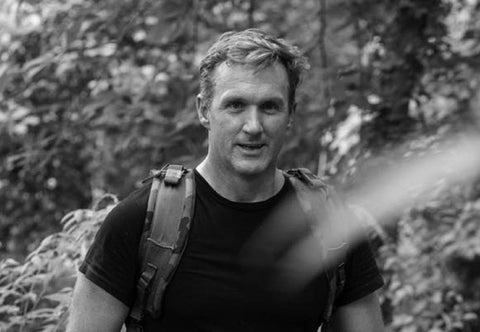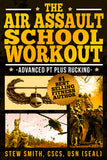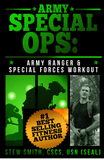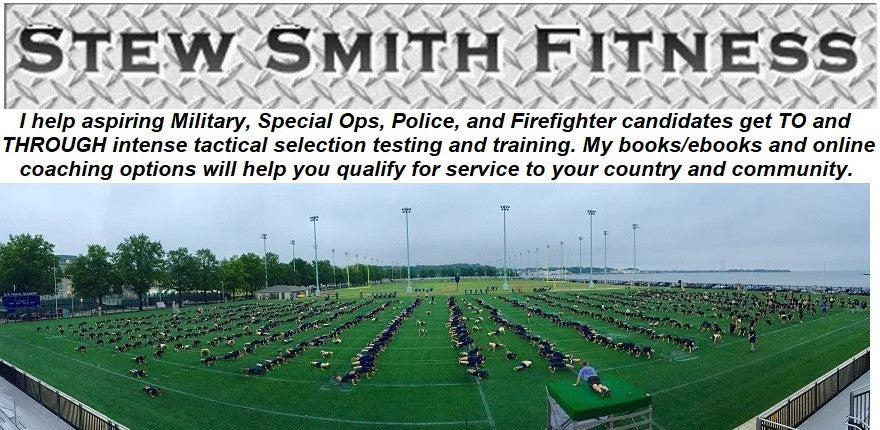Every Spec Ops Candidate is Different - The Journey Depends on Your Current Scores, Strengths, Weaknesses, and
Athletic & Work History
Recently, I had three similar emails from people preparing for Special Ops programs - specifically the Navy. As a coach, you look for bits of information and data to help drive discussions and decisions on how to progress further with training programming. The journey in special ops is riddled with under prepared candidates who wind up failing to meet the long list of standards to get TO and THROUGH training, or quit, or get injured. Most simply overlook training with specificity to reach their goals. 
Here are the three questions and my responses:
1) Athlete - 10 years of sports / 2 more years of college (enlist at 22)
2) Non-Athlete - 4 months of prep / ready to enlist this year (at age 20)
3) Athlete - Has Not Started to train specifically for the PST (age 20):
Below are the emails questions, scores, and my recommendations:
1) Athlete - 10 years of /Sports 2 more years of college (enlist at 22):
The college athlete is usually very well prepared in some areas and needs to focus on weaknesses not developed in the sport. Finding time to work on these weaknesses as a busy student - athlete is tough and can negatively affect the ability to be a good team player and athlete on the team. A delicate balance is needed. Here is his question:
Stew, I am a D1 athlete (lax) and have been thinking about serving (Navy SEAL) after graduation in two years. How do I start preparing while in season and out of season and still be able to make the team each year? I am on scholarship so I cannot jeopardize that opportunity right now. Thanks.
Answer: The good news is you have time and lacrosse players do quite well at BUDS as long as they learn how to swim and get comfortable in the water. Typically, everything else you do in your sport is very helpful with running, strength, muscle stamina for both PT tests to get TO the training and the strength / endurance requirements to get THROUGH the training.
My advice is to assess yourself with a PST during the off-season and see where your weaknesses are on the PST. While in the off-season make some of your workouts focused on timed runs, calisthenics, and swimming. Even during the season you can mix in a few sets of calisthenics and end a hard practice with a cooldown swim focusing on technique of the CSS and treading water. That is actually quite therapeutic for you as well.
Other than that, I would focus on your sport during pre-season training and in season training and a few months of the year focus on improving any assessed weaknesses. See the list of scores many successful candidates obtain before leaving to join.
Final note - if you are not ready to enlist (not crushing the PST or meeting the standards of 4 mile runs, 2 mile swims with fins, etc) give yourself a few months to specifically improve on these types of events. There is no rule you need to enlist right after college (or high school for that matter), enlist when you are ready not because "you think" it is time. Don't Set a Timeline, Set a Performance Starting Line. You have until age 28 before you need to be in a hurry to enlist.
2) Non-Athlete - 4 months of prep / ready to enlist this year (at age 20):
Usually the non-athlete has a LONG way to go for preparing for these types of jobs and being successful. However, depending on the work history vs athletic history, you may be on a different path of a typical 12-18 months to fully prepare. Here is his email:
Stew, I have been preparing for four months for the PST (phase 1 and Phase 2/3 Navy SEAL PST Workout) and have gotten my scores pretty good for someone who did not do sports in high school (in my opinion). Here are before / after scores:
|
Before: |
After: |
My first repsonse was "Damn - what do you do each day if you are not playing sports? Rambo workout stud? or manual labor?" You have really good starting 1st PST scores!

After some Q and A back and forth, he disclosed he has worked all his life on a farm (hay, fencing, building barns, live stock, etc) both before and after school. This type of hard work can 100% replace any level of athletics when it comes to having the work capacity and durability needed to crush PT tests and the following selection programs. As you can see this candidates athletic potential is very high, but his journey was just different.
IMPORTANT - If you are not playing sports, you need to be doing something very physical otherwise the journey my take years (to lose weight / gain muscle / cardio) to even just be PST ready.
My final comment was I do think you are ready to enlist this year. Just fine tune anything and leave no stone unturned with your preparation. Mix in the water / pool skills when you can, swim with fins, make runs longer at that 7 min mile pace (4 mile timed runs). As long as you can make the transition from getting TO BUDS (which you have accomplished with these scores) and getting THROUGH BUDS without pain / injury, you are a solid candidate.

When I said just make sure you have a solid running base and comfortable in the water. He said he runs on his farm instead of using the truck and swims in the river with fins. I said - Damn dude...go get em! Great job!
3) Athlete - Has Not Started to train specifically for the PST (age 20):
Hello Stew, I am looking to join the navy to become a Navy SEAL. I had some questions about the PST. My current Numbers are...
Swim 9:50
Pushups 80
Sit ups 87
Pull ups 16
Run 1.5 miles 9:45
I haven’t started specifically training for the PST yet, this was my first week. Are these good starting numbers? I plan on enlisting very soon with a late ship date, so I have time to improve the numbers.
Depends - what is your athletic history? (answer High Level Hockey Player and trains year round for sports)
My Answer - You are not crushing the PST but it is close. But this is impressive and shows you are above average candidate without even trying yet. Remember - The PST is JUST getting you TO the training. And you want to also focus on GETTING THROUGH the training (graduating BUDS).
2 mile swim with fins
Ruck mile pace 4-6 miles (with 40-50 lbs)
Load bearing skills for logs and boats (aka strength foundation with stamina)
- try the Sandbaby Murph Workout for a test
Treading and other water skills...etc...Drownproofing Skills

How Much Should You Run Per Week Prior to BUDS?

*remember if a school has an attrition rate of 75-80% each class, striving to be in the top 20-25% is just logical.
Summary of the Three Candidates
All of these candidates appear to be good candidates, BUT the journey for them may require a different path. The athlete, non-athlete, and manual laborer could have many different strengths and weaknesses they bring to the table when first considering this journey. This is not something you do on a whim. To be successful in any special ops journey, you need a lifetime of hard work whether it is a job, daily living, or sports. The sedentary to BUDS journey is a much longer journey that one who has developed themselves over the years.
There is no plan that gets you ready from "couch to special ops" in months, your life has to be part of the foundational journey as well. These three are all great candidates, but the journey is just different and depends solely on their current strengths and weaknesses on how to prepare and how long they need to prepare.

Who is Stew Smith? Coach, Trainer, Author, Podcaster: I'm the former Navy SEAL that special ops candidates go to for books, ebooks and online coaching to prepare themselves to get to and through intense tactical assessment and selection programs and qualify for service in their chosen tactical profession. See More at StewSmithFitness.com
Where to Find More Information About Optimal Performance Training Programs
When you start training again, consider the seasonal tactical fitness model. I call it A WAY to train and obviously not the only way to train. But it offers the opportunity to never neglect your weaknesses, helps with flexibility and mobility, but will also put you at a level of physical abilities where you are happy with your overall ability to just about anything. We have a systems where the seasons dictate our training. When it is nicer outside, we tend to run and do more calisthenics. When it is colder and not so nice, we lift more, run, less, and still maintain our outdoor activities with shorter runs and rucks. Check it out: Seasonal Tactical Fitness Periodization System.
My most recent programs that walk you through these four cycles with 12 weeks of each season in two programs.
These Seasonal Tactical Fitness BLOCK Periodization programs will walk you through 4 x 4 weeks cycles with 16 weeks of each season in two programs. (32 total weeks)

The Specific Military / Special Ops Physical Fitness Workouts Where Optimal Performance Will Be Tested Each Day
Navy SEAL Workout Phase 1
Navy SEAL Workout Phase 2 - 3
Navy SEAL Workout Phase 4 Grinder PT
Navy SWCC Workout



Army PFT Workout (Prep For Rucking, OPAT, ACFT)
Army Special Forces / Ranger Workout
Army Air Assault School Workout
Army Airborne Workout





Advanced Running Program - Special Ops Supplement Plan
USMC RECON / MarSOC Workout
USMC OCS / TBS Workout
USMC IST and PFT
The Combat Conditioning Workout
Air Force PJ / CCT Workout Battlefield Airman Prep Course
The UBRR Upper Body Round Robin Workout / Spec Ops version
The Coast Guard Rescue Swimmer / Navy SAR Workout
The Service Academy Workout (West Point, Navy, Air Force Academy)
The Navy, Air Force, Marine Corp Boot Camp Workout
The Law Enforcement Physical Fitness Workouts
The FBI Academy Workout | FBI Workout Vol 2
The DEA Workout
The FLETC Workout - Ace the PEB
The PFT Bible: Pushups, Sit-ups, 1.5 Mile Run
The Fire Fighter Workout - Ace the CPAT
Online Coaching Options
Online PT CLUB - Weekly Workouts created personally for you.
New Member's Only Content / Services Program!
If you want access to years worth of workouts, many of the top eBOOKs, favorite workouts of the week, free fitness APP, closed Facebook Group, video / picture library of exercises, and more access to LIVE Q/A sessions check out the Stew Smith Fitness Members Section.
The dashboard below has the links to all the information, archives, videos, and links to workouts, podcasts, live Q and A lessons.
Consider this! - A Membership Program and Gain Access to Exclusive Content
(click for Fitness Club Dashboard - members only)
Questions? Just email - Stew@StewSmith.com
At StewSmith.com - List of Products and Services
- FREE Articles
- Podcasts and Swimming Videos (Youtube, TikTok, Instagram)
- eBooks
- Books and eBooks in PRINT
- Stew Smith Fitness Club membership site
- Online Coaching
Stew Smith Fitness


















